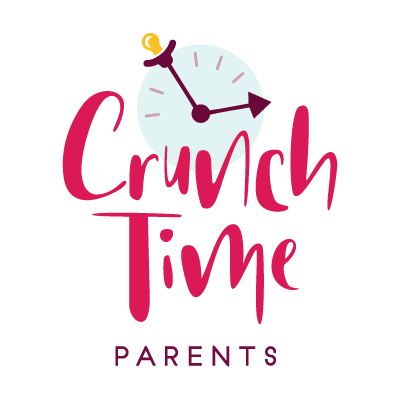A Brooklyn Doula Shares Tips on IVF, "Natural" Birth, and What to Do When Doctors Won't Listen
/Tia Dowling-Ketant in Brooklyn, 2018.
By Salma Abdelnour Gilman
“Deliveries are for pizzas, births are for babies,” Tia Dowling-Ketant told me when we sat down to chat one late-summer morning in Brooklyn. That was just one of the dozens of quotable moments that stuck with me from the hour I got to spend with Tia, hearing about her work as a doula with a mix of clients ranging from low-income pregnant women in underserved neighborhoods, to financially comfortable women looking for a doula who knows the ropes, to couples of all backgrounds coping with infertility.
Hiring a doula isn’t cheap, but lately more community-based organizations like By My Side Doula Support—one of Tia’s partner organizations in Brooklyn—are helping lower-income women access the care that usually only wealthier families can afford. This is especially crucial in neighborhoods with higher-than-average rates of maternal complications and mortality. Doulas are making a huge difference, and the data backs it up: “One-to-one emotional, physical and educational support provided by support personnel, such as a doula, is associated with improved outcomes for women in labor,” according to a recent American College of Obstetricians and Gynecologists (ACOG) report.
Tia spoke to Crunch Time Parents about how she switched careers to do this tough but life-changing work, and gave tips on how women can become our own vocal advocates before, during and after pregnancy. And because Tia is also a fertility doula who experienced infertility before she went through IVF—and gave birth to her son at age 37—she shared insights for anyone on a similar path.
Crunch Time Parents: Tia, how would you describe your typical client, if there’s such a thing?
Tia Dowling-Ketant: Anybody trying to conceive—pregnant and/or postpartum—is my demographic. I’ve been all of my clients. My tagline is, “I know where you are because I’ve been there too.”
I have an affinity for clients who are trying to conceive. I have a client who had infertility issues and is now pregnant with twins. I was so excited to support her on her journey to conceive and am elated to now be her birth doula.
I also service lower-income clients who go to hospitals that are heavy on intervention, and I work with clients who can afford my full fee and may be choosing a birthing center to support their birth.
CTP: How do you find clients with such a wide range of backgrounds? How do they find you?
TDK: The first place is through my community-based programs, like By My Side, which provide doulas to lower income women in certain parts of Brooklyn where the infant mortality and maternal morbidity rates are significantly higher— in Central and Eastern Brooklyn. I’ve attended births for clients who have lived in shelters.
I typically like my schedule to be one or two community-based clients a month, and two private clients a month. I also doula with this great organization called Carriage House Birth. They’re led by three kick-ass women (Lindsey, Sam, Domino) who are changing maternity care in New York City. I get referrals through their tiered network. They’re very inclusive and very aware of the issues that are happening with women of color, and the racial disparities between women of color and their white counterparts. I’m also certified with DONA.
I don’t only provide doula support: I can also help my community-based clients apply for food stamps, or find a crib before the baby is born. I can help them prepare for birth but also help find counseling.
CTP: When someone hires you as an infertility doula, what kind of support can you offer?
TDK: I want to help women find a good provider, and ask questions of their doctor or reproductive endocrinologist about their cycle and treatments. I have a history of infertility, and I’m a part of some online support groups that provide infertility support. I have a son who is four years old, and we tried to conceive him for seven years. We conceived him after doing IVF. I was very fortunate that everything worked out.
It’s important for IVF and other fertility treatments to be covered by insurance, but they’re often not. In New York, they’re covered at around 75 percent (it might be a little bit more now), but in many places they’re not. During my first cycle of IVF I had to advocate for my prescription. I got a prescription for one pen and three refills. They should’ve given me a prescription for three pens and three refills. These are little nuances that you don’t know when you get ready to start a cycle. Someone who knows those things is really helpful.
Once I became pregnant, I thought: I know how to be infertile but I don’t know how to be pregnant or fertile. I felt really weird, because even though I didn’t feel like I was infertile anymore, I also didn’t quite feel that I was pregnant. Pregnancy doesn’t cure infertility, which is one of the many misconceptions about infertility.
I can be pregnant and stay pregnant, but I can’t get pregnant. My Fallopian tubes are blocked. For some women, they can get pregnant but have a hard time staying pregnant. Some women have the ability to get pregnant but cannot sustain a pregnancy.
I do a support group online for women who had been infertile but who are now pregnant and/or parenting. It was a great help for me in making the transition to motherhood.
CTP: How did your previous career prepare you for this work?
TDK: I used to be a case manager with the City of New York for almost 15 years. I worked with the Department of Children’s Services and also with Adult Protective Services, helping adults with money management, and helping them secure housing and apply for Medicaid.
I also worked finding foster homes for adolescent teens and worked with the homeless population. I also work a per diem job on Saturday nights, at a transitional shelter. I work with people who have been homeless for 10 or 20 years and we help them with finding housing, mental health treatment, and sobriety.
As my mom would say, social services runs through our veins. My mother is a teacher and a pastor. We had a teenager from our church live with us. I always tell people I had a teenager before I had a baby. It was fun and challenging. She already had a foundation, but I was glad to be able to support and help her. I was in my early 20s when she came to live with us.
After high school, I went to John Jay College and majored in Deviant Behavior and Social Control, basically like abnormal psych.
CTP: What sparked your decision to switch careers?
TDK: When I was pregnant, I had an amazing doula who is a great friend of mine, Tanisha Evans-Marin. We’ve been friends for 21 years. Her son just recently graduated from college and I met her while she was pregnant with him. She introduced me to doula work, and was so helpful in helping me formulate questions and advocate for myself. I thought, this is amazing. I want to do this for other women.
I remember when I entered the postpartum period, she’d call and ask me, “Did you have lunch today?” And I’d say no. She’d say, “You should probably do that.”
She suggested I become an infertility doula. It was a great fit for me. I seamlessly fell into it. I love it and wouldn’t want to change it for the world.
I was on leave from my city job until this past January, 2018. Then the liaison for HR called me and told me I need to either formally resign or be terminated. Resigning was the hardest thing to do. I’d had that job since my 20s, but it feels good to own my own business and navigate my life in this way.
CTP: What’s some advice you would give women, at any stage of their fertility treatments or pregnancy, about how to choose doctors and interact with them?
TDK: Ask plenty of questions. When you go to a doctor’s visit and you have an appointment, you want to take out multiple pieces of paper with questions on them. That slows down doctors a bit and gives them the opportunity to answer questions. When they answer questions, write the answers down.
For example, “What is your position on pushing? Will there be any concerns if I want to push in different positions?” If you have a birth plan, print out lots of copies. When a new nurse comes in, thank her and say, “I’d like you to have a copy of my birth plan.”
Even though it’s uncomfortable to change providers, you can change providers at any point. I had a client whose doctor wanted to release her water, and she asked detailed questions, and the doctor said, “I don’t want to have to explain obstetrics to you.” She asked for another doctor, and she got one—during her birth. She originally had a doctor from her private practice who attended her birth. She decided to fire that doctor and get a different doctor from her hospital.
For my infertility clients, oftentimes they might love their doctor. I say to them, you can love a doctor all day, but if they don’t get you pregnant they shouldn’t be your doctor. The doctor gets paid whether you get pregnant or not. We need to make sure we advocate for what you need and for you to be able to get pregnant. I went to one clinic and didn’t like the doctor and his bedside manner. I switched to another clinic and doctor and got pregnant.
CTP: There’s been lots of reporting lately about how many maternal complications and deaths could be prevented if doctors paid better attention to women, especially women of color, who are suffering from unusual pain or discomfort postpartum. The Serena Williams case is a perfect example. Have you witnessed situations where doctors basically ignored patients’ complaints?
TDK: Yes, I’ve seen situations where doctors and staff don’t listen to the patients. The doctors are going by a book, but the doulas are trusting in you.
I have had clients in excruciating pain and no one is listening to the patients. But as the doula, I will say to the doctor, “My client is in pain and needs help.”
As doulas, we help you understand the process of birth and how it happens. It’s important to trust your body because your body knows how to do this. Sometimes we don’t trust our body, and we allow someone else to override how we feel about what we are feeling.
When you think about consent, you think about someone signing a piece of paper. But informed consent means understanding the benefits, the risks, the alternatives, and the information that can guide you in your own intuitions. If you use the BRAIN method, you have informed consent. BRAIN stands for Benefits, Risks, Alternatives, Intuition, Now (which means knowing if this is something you need to do right now, or whether it can wait). I learned this from another doula.
Another important thing to remember is that all birth is natural. You can have an unmedicated birth or a medicated birth, but birth is natural no matter how it comes to you.
One of the things that doulas do is to help you advocate for yourself. We never speak on your behalf. We help you ask questions about your care, and we help the people who are going to be with you during your birth know about the questions they should ask too.
That’s why you should have a doula. I’ve told clients they can call me at any hour. I’m like the bodega, I remind them. I’m always open.




















